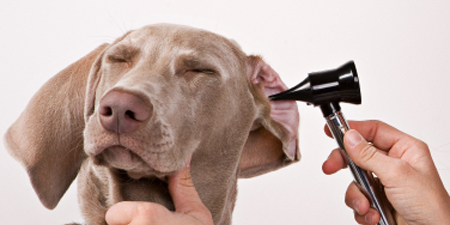- Navigation
- Home
- About
- » Meet Our Staff
- » Hospital Tour
- Services
- » Pet Wellness
- » Puppy and Kitten Care
- » Senior Pet Care
- » Pet Dental Care
- » Vaccinations
- » Microchip Implantation
- » Diagnostics Services
- » Pet Surgery
- » Pharmacy and Nutrition
- » Grooming
- » Boarding
- Resources
- » New Patient Info
- » Common Pet Health Issues
- » Canine Care Guide
- » Feline Care Guide
- » Pet Hospice and Euthanasia
- » Animal Rescue and Adoptions
- » Helpful Links
- News
- Contact
- » Schedule Appointment
- » Emergency
- » Request Prescription Refill
- Online Pharmacy
Canine Care Guide
A happy, healthy dog makes for a happy, healthy human. Our dog care resources give you the information you need to keep your canine companion happy and healthy in between regular veterinary visits. We pride ourselves in being able to effectively diagnose and treat your canine companions with utmost care and attention.
Recommended vaccinations
We believe on vaccinating based on life style or potential exposure. All vaccines used at Weatherly Animal Hospital are FDA approved for the 1 year or 3 year duration. What vaccines we use depends upon a number of things including the age, breed, and health status of the dog, the potential exposure of the dog to an animal that has the disease, the type of vaccine and how common the disease is in the geographical area where the dog lives or may visit.
House training and obedience training
House training your puppy is about consistency, patience, and positive reinforcement. The goal is to instill good habits and build a loving bond with your pet.
It typically takes 4-6 months for a puppy to be fully house trained, but some puppies may take up to a year. Size can be a predictor. For instance, smaller breeds have smaller bladders and higher metabolisms and require more frequent trips outside. Your puppy's previous living conditions are another predictor. You may find that you need to help your puppy break old habits in order to establish more desirable ones. And while you're training, don’t worry if there are setbacks. As long as you continue a management program that includes taking puppy out at the first sign he needs to go and offering him rewards, he’ll learn.
We all know that some basic obedience training makes dogs more fun to be around. What many of us don’t know is that it has other, less obvious, benefits. Obedience training helps your dog see you as her leader, and it also gives her a mental workout–something that many canines need just as much as physical exercise to stave off boredom and make them feel useful. And some commands, like a good recall, may even save your dog’s life one day.
Routine canine health maintenance
It's your job to keep your dog healthy and safe. As your trusted your veterinarian we will guide you about grooming, vaccinations, parasite prevention, first aid and safety, routine physical exams & Preventive Health Care of your dog.
During your dog's annual physical exam you should review these aspects of your dog's health:
- Vaccination status
- Parasite control for intestinal parasites, fleas, ticks, mites, and heartworms
- Dental health – care you give at home; any mouth odors, pain, or other signs of disease you may have observed
- Nutrition – including what your dog eats, how often, what supplements and treats are given, and changes in water consumption, weight, or appetite
- Exercise – how much exercise your dog receives including how often and what kind; and any changes in your dog's ability to exercise
- Ears and Eyes – any discharge, redness, or itching
- Stomach and intestines – any vomiting, diarrhea, constipation, gas, belching, or abnormal stools
- Breathing – any coughing, shortness of breath, sneezing, or nasal discharge
- Behavior – any behavior problems such as barking, 'accidents,' or changes in temperament
- Feet and legs – any limping, weakness, toenail problems
- Coat and skin – any hair loss, pigment changes, lumps, itchy spots, shedding, mats, or anal sac problems
- Urogenital – any discharges, heats, changes in mammary glands, urination difficulties or changes if it has not already been performed
- Blood tests – especially for geriatric dogs, those with medical problems, and those who are receiving medications
Exercise and nutrition
Eating right and staying fit with regular exercise is not just good advice for people, it is good advice for pets too. Maintaining a healthy weight, eating high quality nutritious foods, and keeping a strong body through exercise are cornerstones to wellness throughout a lifetime. How much exercise is enough depends on your dog’s age, breed, and health.
As Americans struggle with being one of the most overweight nations in the world, our perspective of our pet’s weight is also changing. According to the Association for Pet Obesity Prevention (APOP) pet obesity rates have been rising for several years. As of 2012, 53 percent of dogs are either overweight or obese, and 22 percent of pet owners said their pet was normal weight when their dog was actually overweight.
These extra pounds put our pets at increased risk for many of the same diseases people who encounter obesity face, including a life expectancy shortened by 2.5 years. It is not a matter of “if” a pet will contract one of the diseases listed below, it is more a matter of “when” a pet will contract the disease if he keeps the pounds on.
- Arthritis
- Cranial cruciate ligament injury
- Diabetes
- High blood pressure
- Heart and respiratory disease
- Kidney disease
- Certain Cancers – especially intra-abdominal cancers
Call (205) 621-5755 to schedule an appointment
91 Weatherly Club Dr, Alabaster, AL 35007, info@weatherlyvets.com
Copyright © 2025 - Weatherly Animal Hospital

